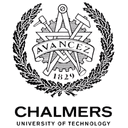This course is part of Environmental Science: Foundations, Measuring & Monitoring.
This comprehensive course explores various Earth observation tools and techniques used to monitor our planet's changing environment. Students learn about cutting-edge measurement tools for studying the solid Earth, atmosphere, and biosphere. The curriculum covers both space-based and ground-based sensing technologies, providing hands-on experience through collaborative experiments. Participants gain practical knowledge about data collection, analysis, and interpretation from different sensors. The course features insights from world-renowned experts and emphasizes the importance of Earth monitoring for understanding environmental changes. Special attention is given to evaluating data quality and comparing different measurement tools.
4.5
7,612 already enrolled
Instructors:
English
English
What you'll learn
Master essential measurement tools for studying solid Earth atmosphere and biosphere
Evaluate and assess the quality of Earth observation data
Compare different measurement technologies and their applications
Apply Earth observation techniques to monitor environmental changes
Skills you'll gain
This course includes:
PreRecorded video
Graded assignments, exams
Access on Mobile, Tablet, Desktop
Limited Access access
Shareable certificate
Closed caption
Get a Completion Certificate
Share your certificate with prospective employers and your professional network on LinkedIn.
Created by
Provided by

Top companies offer this course to their employees
Top companies provide this course to enhance their employees' skills, ensuring they excel in handling complex projects and drive organizational success.





Module Description
This course provides a comprehensive introduction to Earth observation and monitoring techniques. Students learn about various measurement tools and technologies used to study different Earth systems, from the planet's core to outer space. The curriculum covers essential concepts in environmental monitoring, including satellite technology, ground-based sensors, and atmospheric measurements. Topics include data collection methods, quality assessment, and practical applications of Earth observation data. The course emphasizes hands-on learning through collaborative experiments and features insights from leading experts in the field.
Fee Structure
Individual course purchase is not available - to enroll in this course with a certificate, you need to purchase the complete Professional Certificate Course. For enrollment and detailed fee structure, visit the following: Environmental Science: Foundations, Measuring & Monitoring
Instructors

4 Courses
Expert in Space Geodesy and VLBI at Chalmers
Dr. Karine Le Bail, a Senior Researcher in the Space Geodesy group at Chalmers University of Technology's Onsala Space Observatory, is a distinguished expert in Very Long Baseline Interferometry (VLBI) and space geodesy. Joining Chalmers in June 2020, her research focuses on the Very Long Baseline Interferometry Global Observing System (VGOS), with particular emphasis on radio source structure and atmospheric turbulence effects on geodetic measurements. As a member of the International DORIS Service Governing Board and through her numerous publications, Le Bail has significantly contributed to improving the accuracy of Earth observation techniques. Her expertise extends to teaching, where she instructs courses on "Sensing Planet Earth – From Core to Outer Space" and "Sensing Planet Earth – Water and Ice." With a background that includes contributions to the GSFC DORIS contribution to ITRF2014 and involvement in various international VLBI projects, Dr. Le Bail plays a crucial role in advancing our understanding of Earth's dynamics and in shaping the next generation of geodesists and Earth scientists.

4 Courses
Expert in Space Geodesy and Navigation at University of Stuttgart
Professor Thomas Hobiger, currently at the University of Stuttgart, is a distinguished expert in space geodesy and navigation. With M.Sc. and Ph.D. degrees from Vienna University of Technology, Hobiger's career spans roles at a Japanese research institute and as Associate Professor at Chalmers University of Technology before his current position. His research interests encompass a broad spectrum, including VLBI, GNSS, Earth rotation, sea-level change, software-defined radio, and high-performance computing. Hobiger has significantly contributed to developing next-generation space-geodetic systems and processing tools, particularly for VLBI and GNSS. His expertise earned him the prestigious Geodesy Section Award from the American Geophysical Union in 2018. As an educator, he previously taught courses on sensing planet Earth at Chalmers. Hobiger's multifaceted work in space geodesy and navigation continues to advance our understanding of Earth's dynamics and improve precision in global positioning and timing systems.
Testimonials
Testimonials and success stories are a testament to the quality of this program and its impact on your career and learning journey. Be the first to help others make an informed decision by sharing your review of the course.
Frequently asked questions
Below are some of the most commonly asked questions about this course. We aim to provide clear and concise answers to help you better understand the course content, structure, and any other relevant information. If you have any additional questions or if your question is not listed here, please don't hesitate to reach out to our support team for further assistance.



